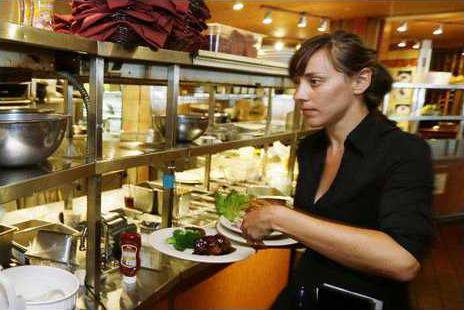It isn’t easy being a poor, working American.
For poor workers, the Great Recession that plagued the United States and affected most of the world’s economy is far from over for workers caught in poverty, according to The Daily Signal’s James Sherk.
A lot of it comes down to gaining skills, wrote Sherk. Employers have cut back on hours, and thus cut back on the amount of time that people can improve their ability to work.
“The more you play a sport or instrument, the better you get,” Sherk wrote. “It’s the same story with work: with more experience, workers become more productive and earn higher pay. Sadly, during the recession the length of the average workweek shortened.”
It’s not helping that Americans are accepting part-time jobs as the new normal, Sherk noted in another piece from The Daily Signal.
“Of course, employers usually reduce work hours in times of economic distress, then increase them once the crisis passes,” Sherk wrote. “That’s exactly what happened in the most recent recession … for workers in the middle three income quintiles. But the recovery never happened for workers in the bottom fifth of the wage distribution. Their hours fell and did not come back.”
A similar theme was touched on by Maria Konnikova in her piece for The New York Times. According to Konnikova, People are switching their schedules, causing them to have less time to get any work done.
As Americans try to juggle family, life and work, they’re finding themselves asking for extensions with work projects, which ultimately keeps them from being more productive, she wrote.
“Under scarcity, you devote a lot of resources to the thing you’re lacking,” Eldar Shafir, a psychologist at Princeton, told Konnikova. “When people are juggling time, they are doing something very similar to when they’re juggling finances. It is all scarcity juggling. You borrow from tomorrow, and tomorrow you have less time than you have today, and tomorrow becomes more costly. It’s a very costly loan.”
Some workers might do well under deadline. But it’s not the pressure of the deadline itself that is hurting American workers from being more productive. It’s the fact that the people are building loads of work on top of the pile they’ve already accumulated, Konnikova wrote.
“We tend to assume that pressure makes us more efficient,” Konnikova wrote. “But in reality, it’s not that you’re working better when you’re stressed. It’s that the opposite situation, overabundance, often makes us less efficient.”
So workers are finding it tough to gain new skills and get the hours to be efficient. But some workers are getting the benefit of the doubt. For example, Starbucks is going to pay for the college tuition of its employees who take online classes with Arizona State University, USA Today reported.
And America’s best employer may actually benefit older workers overall, according to Forbes.
This employer is the National Institutes of Health, where it gives a lot of credit and praise to workers over the age of 50, Forbes reported. The key is to help teach newer workers what they need to know. The NIH is taking advantage of the wisdom that many older people tend to have, according to Forbes.
It’s about helping all generations.
“Older workers are changing the workplace to an extent women did 30 years ago when they started entering the force in greater numbers,” Deborah Banda, AARP’s interim vice president of financial security, told Forbes. “What older workers are doing in the workplace is going to trickle down to all generations.”
So while the poor may be struggling now, hope may lay in the older generations.
Email: hscribner@deseretdigital.com
Twitter: @herbscribner
It's tough out there for a poor worker





